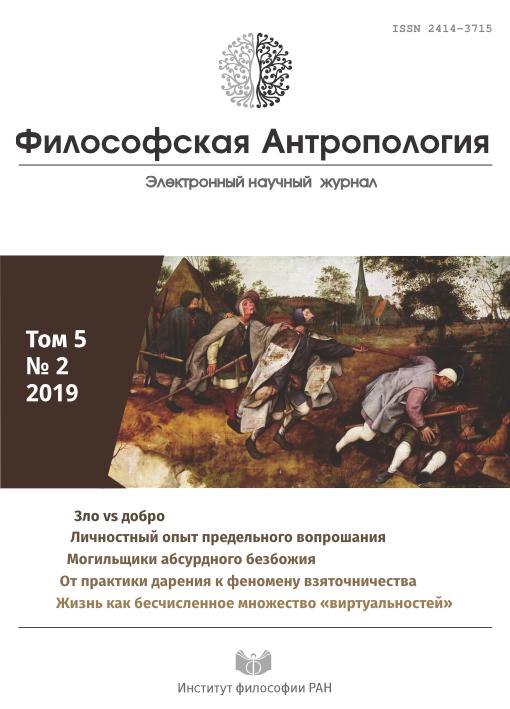Utilitarianism
DOI:
https://doi.org/10.21146/2414-3715-2019-5-2-192-215Keywords:
morality, ethics, utilitarianism, aggregation, greatest happiness principle, protoutilitarianism, classical utilitarianism, contemporary utilitarianism, critique of utilitarianismAbstract
The article analyzes the history and theoretical content of utilitarianism. Utilitarianism is a normative program that uses as a criterion of moral rightness the amount of aggregate utility produced by the particular action or general rule. Utility can be identified with happiness, pleasure, welfare, desire-satisfaction, preference-satisfaction of individuals or realization of their interests. The aggregation presupposes an equal value of the portion of utility gained by any individual. The influential summary of the utilitarian normative program is the principle of the greatest happiness (the utility principle). Some elements of this program can be discovered in the Ancient ethical thought but first clear statements of the utility principle in the Western philosophy appeared only at the turn of the XVIIIth century. It became a pivotal principle of ethics in some British theological conceptions of the XVIIIth century (the so-called ‘theological utilitarianism’). The founder of the classical utilitarianism, J. Bentham, joined the hedonistic moral psychology with the mechanistic ‘felicitous calculus’. J.S. Mill transformed Bentham’s utilitarianism diminishing the mechanistic character of utility-aggregation, introducing qualitative differences into the sphere of pleasure and stressing the importance of rights. H. Sidgwick situated the utilitarian normative program within the wider space of practical rationality. In the first two-thirds of the XXth century utilitarianism dominated normative ethics in the English-speaking philosophical tradition. But later it was subjected to harsh criticism by supporters of deontology and virtue ethics, and lost this position. There are several questions that form different theoretical strands within the contemporary utilitarianism: 1) what is the subject of the utilitarian test, 2) what is the meaning of utility, 3) what is the best formula of aggregation, 4) what is the best way of taking into account possible consequences of action?

